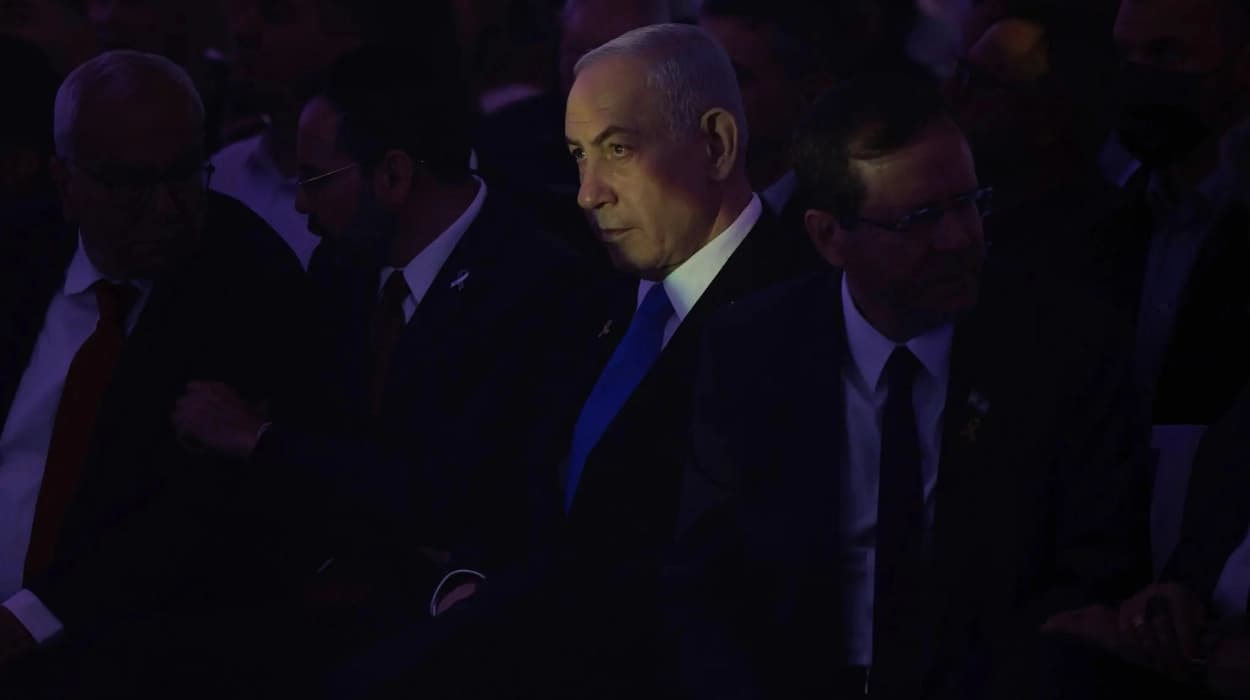Former Israeli Prime Minister Benjamin Netanyahu and former US President Donald Trump’s recent public interactions have sparked widespread debate and controversy, highlighting complex political optics and deep divisions in public opinion. This report examines the key events, reactions, and implications surrounding their relationship.
What Happened Between Netanyahu and Trump?
As reported by multiple media outlets, the recent encounters between Benjamin Netanyahu and Donald Trump have drawn significant attention due to their political symbolism and timing. Netanyahu, a dominant figure in Israeli politics, and Trump, a former US leader with a strong base of supporters, have appeared together in public events that some view as a strategic alliance, while others see them as provocative gestures.
According to Al Jazeera staff coverage on 11 July 2025, the optics of their meetings have been met with both enthusiasm from supporters and outrage from critics, reflecting the polarised political landscapes in both Israel and the United States.
Netanyahu and Trump’s Interactions Controversial
The controversy stems from several factors:
Political Legacy and Policies: Netanyahu’s tenure as Israeli Prime Minister was marked by contentious policies regarding Palestinian territories and regional diplomacy. Trump’s presidency included strong support for Israel, notably recognising Jerusalem as its capital, which inflamed tensions in the Middle East.
Public Perception: As noted in the 2025 Reuters Institute Digital News Report analysed by GIJN, public trust in traditional media and political figures is eroding globally, with misinformation and polarised narratives complicating how such political events are interpreted.
Symbolic Timing: The timing of Netanyahu and Trump’s public appearances together coincides with ongoing regional conflicts and upcoming elections, intensifying scrutiny over their motives and the messages conveyed.
Media and Public Response
The media coverage has been extensive and varied. Journalists from different outlets have highlighted contrasting views:
Supporters’ Viewpoint: Some conservative commentators and political allies praise the duo for their shared vision on security and diplomacy, seeing their alliance as a reinforcement of certain ideological stances.
Critics’ Concerns: Others warn that their partnership risks exacerbating divisions and undermining peace efforts. Al Jazeera’s reporting emphasises the outrage among human rights advocates and political opponents who see the optics as endorsing controversial policies.
Role of Social Media: The Reuters Institute report also highlights how social media influencers and platforms play a significant role in shaping public opinion about such figures, often amplifying both support and misinformation.
Broader Implications
The interactions between Netanyahu and Trump have several broader implications:
Impact on Israeli Politics: Netanyahu’s continued prominence and association with Trump could influence Israel’s domestic political dynamics, especially as the country approaches critical elections.
US Foreign Policy Influence: Although Trump is no longer president, his ongoing influence within the Republican Party and among certain voter bases means his relationship with Netanyahu could affect future US policy towards Israel and the Middle East.
Media Trust and Information Integrity: The case exemplifies challenges in public trust towards news media and political figures, as highlighted by the Reuters Institute’s findings on misinformation threats and the role of investigative journalism.
Experts Sayings About This
Experts in political science and media studies suggest the following:
The symbolism of Netanyahu and Trump’s alliance is powerful but double-edged, potentially mobilising supporters while alienating others.
The media’s role is crucial in providing balanced, factual coverage to help the public navigate complex political narratives.
The ongoing erosion of public trust in traditional news sources demands more rigorous investigative journalism to counter misinformation, as underscored by the 2025 Reuters Institute report.
Expectations Moving Forward
Given the current political climate and media landscape:
Further public appearances and statements by Netanyahu and Trump are likely to continue attracting intense scrutiny and debate.
Media outlets will need to maintain high standards of neutrality and fact-checking to ensure accurate reporting.
The public’s response will be shaped not only by the events themselves but also by how information is disseminated and interpreted across various platforms.
Conclusion: The recent optics involving Benjamin Netanyahu and Donald Trump encapsulate the complexities of modern political alliances and media dynamics. Their interactions serve as a focal point for broader discussions about leadership, media trust, and geopolitical strategy, demanding careful and balanced journalistic scrutiny.
